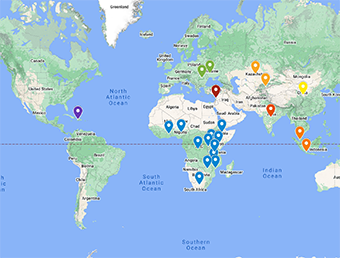

- Associate Professor of Human Development & Family Sciences, University of Delaware
- Former Postdoctoral Fellow, CIRA
Biography:
My research focuses on understanding and addressing associations between stigma and health inequities across the lifespan. I aim to contribute to knowledge of the mechanisms whereby stigma undermines health outcomes and what moderates these relationships in protective ways, as well as stigma interventions to improve the wellbeing of vulnerable and at-risk children, youth, and families. I earned my PhD in Social Psychology in 2011 from the University of Connecticut, where I completed additional training in social processes of HIV/AIDS, health psychology, and quantitative research methods. I then pursued additional post-doctoral training in HIV/AIDS at the Center for Interdisciplinary Research on AIDS at Yale University as well as in child- and family-centered health outcomes research at Harvard Medical School and Boston Children’s Hospital.
I have contributed to theories of how stigma associated with socially devalued characteristics relates to health inequities. My theoretical contributions have had their largest impact in the field of HIV. I have been invited to participate in meetings hosted by the White House and UNAIDS to address HIV stigma domestically and internationally through research and advocacy. I apply these theories to my research, which has demonstrated that stigma experienced by primarily Black and Latino, socioeconomically disadvantaged middle school students; young, Black and Latina pregnant women; and adults living with chronic illnesses including HIV is associated with deleterious outcomes ranging from substance use and sexual risk behaviors to poor mental and physical health. Within the context of this work, I apply an advanced quantitative skillset including structural equation modeling, multilevel modeling, and psychometric evaluation techniques. I developed and psychometrically evaluated the Chronic Illness Anticipated Stigma Scale, which has been translated into several languages and is being implemented in studies internationally.



